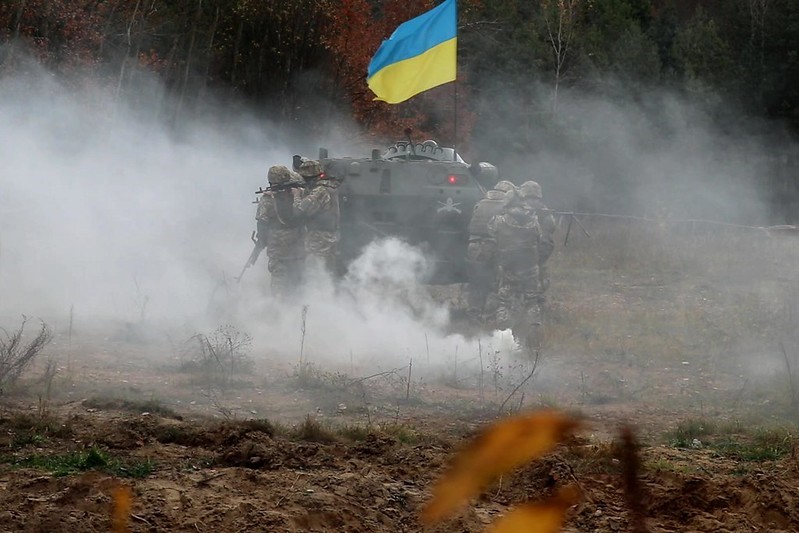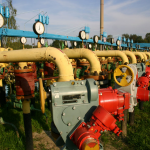RUSSIA MONITOR
Date: 18 February 2020
Attack in Donbass, Conference in Munich: Bad Signals for Ukraine
First, the 2020 Munich Security Conference brought no positive results for Kyiv, and then, soon after that, pro-Russian rebels launched an attack in the Donbass. Simply put, this is Russia’s way of demonstrating that the peace process resumed in autumn 2019 has been frozen again and will remain so for a long time. This is a problem for Volodymyr Zelensky, who has made reaching a peace agreement on the Donbass and putting an end to the actual armed conflict one of the most important points of his presidency. The recent events also confirm that the international situation – in particular, regarding the conflict in the Donbass and relations between Western Europe and Russia – is now changing, unfortunately, to the detriment of Ukraine.

On February 18, at about 5 o’clock in the morning, pro-Russian separatists attacked Ukrainian positions in the Luhansk Oblast, near the villages of Novotoshkovske, Orikhove, Krymske and Khutor Vilny. They opened fire, using weapons banned by the Minsk Agreements, including 120-millimetre calibre mortars, grenade launchers and heavy machine guns. Under artillery fire, the rebels tried to break through the front line at the meeting point of the positions held by two Ukrainian brigades. After five hours of fighting – the heaviest since the beginning of Zelensky’s presidency – the rebels asked for a ceasefire. The gunfire stopped, the situation is stable, the Ukrainians have held their positions. Chief of the General Staff of the Armed Forces of Ukraine Ruslan Khomchak reported that one Ukrainian soldier was killed, three were wounded and two injured. The rebels lost four men, six people were wounded. “This is an attempt to disrupt the peace process,” President Volodymyr Zelensky said. At an emergency meeting of the National Security and Defence Council, Zelensky assured that the attack of the pro-Russian rebels would not change Ukraine’s course towards ending the war.
Support Us
If content prepared by Warsaw Institute team is useful for you, please support our actions. Donations from private persons are necessary for the continuation of our mission.
The attack was conducted on the fifth anniversary of the victory of pro-Russian forces in the battle of Debaltseve. It should be noted that the escalation of hostilities in the Donbass occurred the day after Russia’s Minister of Foreign Affairs Sergey Lavrov, when asked about the possibility of holding a summit of the Normandy Four in April, had said in Munich that the timing of the meeting should be understood only as the wishes of Russia’s partners in this format. He emphasised that Russia has not yet seen any progress as regards the implementation of the provisions of the previous summit of the Normandy Four in December 2019 in Paris. Lavrov said that this is Kyiv’s fault. This means that the Kremlin has adopted even a more rigid stance after the renewal of the peace negotiations last year. During the Munich conference, both President of Ukraine Volodymyr Zelensky and President of France Emmanuel Macron expressed hope that another summit of the Normandy format will be held in April. At the very same conference, an incident occurred, illustrating Western Europe’s shifting attitude towards Russia. A document containing proposals for resolving the Ukrainian-Russian conflict prepared by the Euro-Atlantic Security Leadership Group, a non-governmental organisation, was published on the website of the 56th Munich Security Conference. Some of the statements presented there echo the Kremlin’s standpoint. The document was removed from the website due to the criticism expressed by Kyiv as well as other expert centres. Both its publication and recommendations, such as, for example, a partial easing of sanctions in exchange for the gradual implementation of the Minsk Agreements, are in line with the idea of resetting relations with Russia, which have worsened since the annexation of Crimea in 2014, that is being pushed through by some Western European politicians, including Macron and certain German elites.
All texts published by the Warsaw Institute Foundation may be disseminated on the condition that their origin is credited. Images may not be used without permission.















